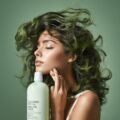Understanding Dandruff: A Common Scalp Concern
Dandruff is a widespread scalp condition that affects millions of people worldwide. While it’s often seen as merely a cosmetic issue, dandruff can cause discomfort, itching, and embarrassment for those who experience it. The good news is that there are many effective solutions available to manage and reduce dandruff. In this compassionate guide, we’ll explore the best dandruff solutions, focusing on gentle, nurturing approaches to scalp health.
The Root Causes of Dandruff
Before diving into solutions, it’s important to understand what causes dandruff. This flaky scalp condition can arise from various factors:
- Dry skin
- Sensitivity to hair care products
- Oily, irritated skin (seborrheic dermatitis)
- Overgrowth of a yeast-like fungus called Malassezia
- Stress and poor diet
- Certain skin conditions like psoriasis or eczema
By identifying the underlying cause, you can choose the most appropriate and gentle treatment for your scalp.
Nurturing Your Scalp with Natural Remedies
Many people find relief from dandruff through natural, home-based treatments. These solutions are often gentle on the scalp and can be easily incorporated into your hair care routine:
- Tea Tree Oil: Known for its antifungal properties, tea tree oil can help combat the yeast associated with dandruff. Mix a few drops with your regular shampoo or dilute it with a carrier oil for a soothing scalp treatment.
- Apple Cider Vinegar Rinse: The acidity of apple cider vinegar can help balance scalp pH and reduce fungal growth. Mix equal parts water and apple cider vinegar for a post-shampoo rinse.
- Aloe Vera: With its anti-inflammatory properties, aloe vera can soothe an irritated scalp. Apply pure aloe vera gel directly to your scalp, leave for 15 minutes, then rinse.
- Coconut Oil: This natural moisturizer can help hydrate a dry scalp and reduce flaking. Massage a small amount into your scalp before bed and wash it out in the morning.
Remember, natural remedies may take time to show results, so be patient and consistent with your chosen treatment.
Choosing the Right Anti-Dandruff Products
When selecting anti-dandruff hair care products, look for gentle formulations that address your specific scalp needs:
- Zinc Pyrithione Shampoos: These products help reduce the yeast that can cause dandruff.
- Salicylic Acid Shampoos: Ideal for removing scales and flakes from the scalp.
- Ketoconazole Shampoos: These have strong antifungal properties and can be effective for severe dandruff.
- Selenium Sulfide Shampoos: These slow down the death of skin cells on the scalp, reducing flaking.
- Coal Tar Shampoos: These can help slow down the rapid shedding of skin cells.
When using these products, massage them gently into your scalp and let them sit for a few minutes before rinsing. This allows the active ingredients to work effectively.
Lifestyle Changes for a Healthier Scalp
In addition to topical treatments, certain lifestyle adjustments can significantly improve scalp health and reduce dandruff:
- Manage Stress: High stress levels can exacerbate dandruff. Practice relaxation techniques like meditation or yoga to keep stress in check.
- Eat a Balanced Diet: A diet rich in zinc, B vitamins, and healthy fats can promote scalp health. Include foods like nuts, seeds, whole grains, and fatty fish in your meals.
- Stay Hydrated: Drinking plenty of water helps keep your skin, including your scalp, hydrated and healthy.
- Limit Hair Styling Products: Excessive use of hair gels, sprays, and other styling products can irritate your scalp. Use them sparingly and always wash them out thoroughly.
- Regular Scalp Massages: Gently massaging your scalp can improve blood circulation and promote overall scalp health.
Remember, a holistic approach that combines proper hair care, a healthy lifestyle, and the right treatments often yields the best results in managing dandruff.
When to Seek Professional Help
While many dandruff cases can be managed at home, there are times when it’s best to consult a dermatologist:
- If over-the-counter treatments don’t work after several weeks
- If your scalp becomes very red, swollen, or painful
- If you notice hair loss along with dandruff
- If dandruff is severely impacting your quality of life
A dermatologist can provide a proper diagnosis and recommend prescription-strength treatments if necessary. They can also rule out other scalp conditions that might be mistaken for dandruff.
Frequently Asked Questions About Dandruff
1. Can dandruff cause hair loss?
While dandruff itself doesn’t directly cause hair loss, excessive scratching due to an itchy scalp can damage hair follicles and lead to temporary hair loss. Managing dandruff effectively can help prevent this issue.
2. Is dandruff contagious?
No, dandruff is not contagious. It’s a common scalp condition that can’t be passed from person to person through contact or sharing personal items.
3. How often should I wash my hair if I have dandruff?
If you have dandruff, it’s generally recommended to wash your hair daily or every other day with an anti-dandruff shampoo. However, if you have dry or chemically treated hair, consult with a dermatologist for a personalized washing schedule.
4. Can certain foods trigger dandruff?
While there’s no direct link between specific foods and dandruff, a diet high in processed foods, sugar, and unhealthy fats may contribute to inflammation in the body, potentially exacerbating scalp issues. A balanced diet rich in vitamins and minerals can support overall scalp health.
5. Is it okay to use hair dye if I have dandruff?
It’s best to treat and manage your dandruff before applying hair dye, as the chemicals in dye can irritate an already sensitive scalp. If you must dye your hair, do a patch test first and consider using gentler, ammonia-free formulations.
Remember, dealing with dandruff is a journey that requires patience and self-compassion. With the right approach and consistent care, you can achieve a healthier, flake-free scalp and regain your confidence. Don’t hesitate to seek professional advice if you’re struggling, and always prioritize the health and well-being of your scalp and hair.









